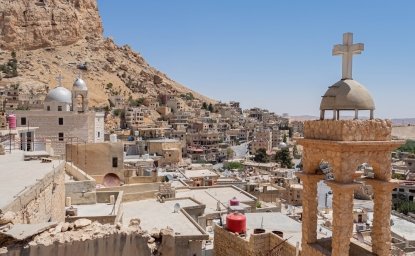The details of what was and was not agreed to in the recent Geneva meeting of the Action Group on Syria aren’t yet available, but it’s hard to imagine that the outcome — a new Kofi Annan plan for a national unity government leading to a political transition — will have any more success than his last six-point initiative. In fact, the results in Geneva are only likely to lead to a bigger muddle by sending confusing signals about whether Assad — the master of this disaster — can be part of the transition process.
Four primary obstacles confront a diplomatic solution to the bitter conflict in Syria. And as much as we’d all like to see a settlement negotiated, the killing end, the Assads depart, and a new democratic Syria born, it’s unlikely to happen through the UN special envoy’s plan — either version A or B. These kind of conflicts usually end when one side prevails or third parties intercede to tip the balance and force a solution. Neither is likely to happen anytime soon.
Bad options
Forget Kofi Annan for a minute. Not even Superman could unwind the current mess playing out In Syria. This is a bloody political and sectarian conflict between a regime that has said it’s at war with the world and has sufficient resources and will to continue the fight and an equally determined opposition that is evolving from a rudimentary insurgency to a much more deadly one. Neither has any intention of compromise.
The conflict in Syria is less amenable to outside persuasion and intervention than at any point since it began, precisely because it’s owned — as only a struggle for survival can be — by the parties waging it. And those who sit in Geneva, for all their good intentions, seem strangely irrelevant despite their collective power. As the Yiddish saying goes, Man plans and God laughs.
Annan's Plan B
On the face of it, the notion that a national unity government can be forged out of the chaos and conflict on the ground between redeemable elements of the Assad regime and willing opposition members appears credible in principle. After all, if an outside military intervention is too risky and might make matters worse, why not try diplomacy’s softer landing? Maybe the real Annan agenda is to create fissures in the regime, to offer a way out to those who don’t want to go on trial for war crimes or worse, get shot by rebels crawling out of drainage pipes. But it seems unlikely that such a process of vetting and selection is possible while the Assads retain control, the bunker-mentality reigns and the fighting intensifies. We have to assume that the Annan approach is based on some kind of inside assessment of the state of play among regime elements in Damascus. If not, then the chances of success will only further recede.
Then there’s the pesky question of the Assad family’s role. Annan seems to have succeeded in finessing this issue for the moment, largely to keep the Russians on board. And the Americans appear to have acquiesced in hopes of producing something out of Geneva. But it strains the bounds of credulity to the breaking point to believe that the opposition inside Syria — the Free Syrian Army (FSA) or any of the other alphabet-soup organizations — would agree to anything other than forcing Assad out. The idea of his stepping aside rather than down might have worked a year ago, but with 13,000-plus dead and thousands more imprisoned, wounded and tortured, it’s hard see how Assad can be part of any solution, even a transitional one. For this to have any chance of working, Assad would have to be desperate and ready to deal, and that doesn’t seem to be the case.
Coalition of the divided, unwilling and disengaged
The other serious problem with Kofi Annan’s Plan B is that whatever the Geneva action group agreed to, you have to wonder whether any of the key players have a stake in really owning it. The Americans would like the Syria situation to just go away. The president’s future lies in focusing on fixing America’s broken house and getting reelected, not in participating in some foreign adventure that has the United States spending more money, let alone deploying military assets. The president also risks getting hammered by the Republicans for seeming to accept — even temporarily — Assad’s role in the Annan transition plan. The Russians, on the other hand, aren’t prepared to abandon Assad (at least yet), and if they don’t like where the transition is headed, Moscow will pull away too. Other regional actors — the Turks, the Saudis (bumped from the guest list to keep the Russians happy and to balance the effort to exclude Iran) just don’t have the moxy to lead.
And so, as with so may other developments in this region, the main action will be determined by the proverbial situation on the ground. Three possible contingencies — neither predictable nor foreseen — might present themselves to change that situation: first, a major crack in the regime triggered by an internal challenge to the Assads by a military commander with sufficient forces to present a credible fissure; second, a Syrian Srebrenica which leads to a level of violence that forces the external powers to intervene; or third, major gains by the opposition that allow them to seize and control significant territory and call for outside help.
Short of that, the Syrian conflict will drag on with no end in sight, getting worse before it gets worse.
This article was first published on Al Monitor.





